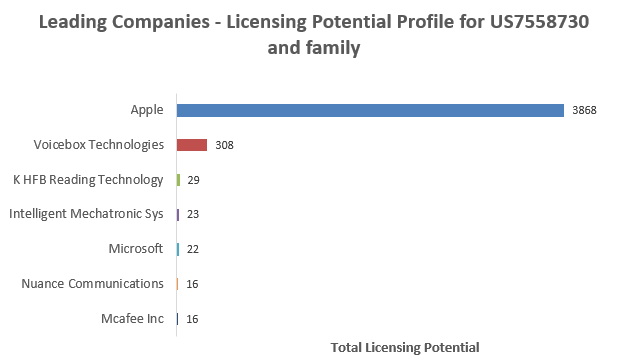Who invented Siri? Apple sued for patent infringement!
Did Apple invent Siri? This is perhaps a conversation for another time, but movie fans might remember the all powerful HAL 9000 in the 1968 sci-fi movie: 2001: A Space Odyssey.
Putting this aside, publicly listed Arizona based company Advanced Voice Recognition Systems Inc owns several patents for speech recognition and transcription, including US7558730B2, Speech recognition and transcription among users having heterogeneous protocols, and they have asserted this patent against Apple, in particular, their Siri system.
US7558730 claims:
A system for or facilitating the exchange of speech recognition and transcription among users, ….that uses a formatted transcription of formatted spoken text…..to provide bi-directional translation
>>>>>>>>>
Whenever I hear about an asserted patent, I always ask two questions
1) Just how valid is the patent? Surely it might a granted patent, but is there uncited prior art that could affect this case?
2) Who else might be a target of the patent assertions?
Using Ambercite, we can answer both questions very efficiently.
What uncited prior art can we find?
US7558730 has a priority date of November 2001. Runing a search for prior art documents can be as simple as running the query shown below:
As requested, this returned 50 very similar patents, but if requested Ambercite could return up to 900 similar and prior art patents. And how similar? The very last patent in this list of 900 patents is WO2001024161, covering a:
..speech recognition system includes an input for receiving a signal representative of speech (SIS) and a recognition unit for recognizing the signal and representing the recognized signal as word(s).
So yes, quite similar.
Returning to the 50 results, these included 6 known prior art citations, and 44 not previously cited documents (‘unknown citations’). These included the likes of this patent here:
Which included this disclosure:
This quick response time gives the overall appearance and experience of a real-time discourse that is more natural and pleasant from the user's perspective: in other words, bi-directional translation
And there are 43 other patents to consider in this short list as well. If I was a patent defense lawyer for Apple, I would be very happy with this wealth of uncited prior art to look through.
So that is the first question answered - is there unknown prior art that could potentially invalidate the patent?
Who else might be at risk of being sued by the patent owner?
We can also analyse this via Ambercite, using a slightly different query. We filtered patents filed after October 2007 as this was the filing date of US7558730.
This returned 250 results with a decreasing degree of similarity. From experience, a minimum value of 1 for similarity is appropriate for licensing analysis, and if we limit the results to patent families with a similarity of 1 or more, there are 140 patent families remaining.
Ambercite can calculate the metric Licensing Potential, and if we add the licensing potential values for different patent owners in this dataset, one company stands out:
What this data tells me is that if I was the owner of this patent, I would look at Apple first as a licensing prospect - which is exactly what they have done. There is also a list of other companies, but none, in this analysis at least, are as prominent as Apple.
Having said that, Voicebox Technologies has recently been acquired by Nuance, who claim to have their technology in more than 200 million cars.
None of this, of course, is to say that Nuance is infringing this patent, or the likes of Google and other suppliers of virtual assistants are not. But it does suggest where the patent owner could be looking.
Surely it can’t be this easy? What about keywords and class codes and all of those time consuming things?
It can be this easy and effective using our AI patent search tool Ambercite, and a growing list of leading patent owners are using Ambercite for this very reason - you can learn more at the link below:
Of course, like every other patent search engine, Ambercite works better in some situations than others, and in fact the smart searchers use Ambercite alongside more traditional keyword based patent searching - in order to return the best possible results.






